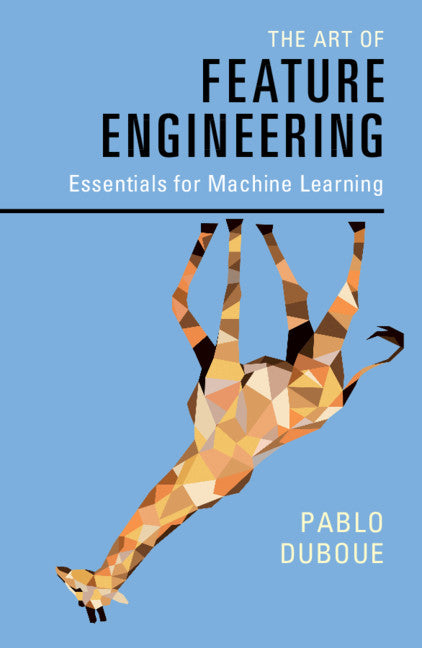Freshly Printed - allow 3 days lead
Couldn't load pickup availability
The Art of Feature Engineering
Essentials for Machine Learning
A practical guide for data scientists who want to improve the performance of any machine learning solution with feature engineering.
Pablo Duboue (Author)
9781108709385, Cambridge University Press
Paperback / softback, published 25 June 2020
284 pages
22.8 x 15.2 x 1.6 cm, 0.42 kg
'This book provides a large catalogue of feature manipulation techniques along with non-trivial examples to illustrate their applicability and impact on performance. It could be suitable as a textbook for an upper level undergrad or graduate text mining or multimodal data analysis class. Recent graduates starting in field data mining and text analysis will find this a useful text.' Wlodek Zadrozny, University of North Carolina
When machine learning engineers work with data sets, they may find the results aren't as good as they need. Instead of improving the model or collecting more data, they can use the feature engineering process to help improve results by modifying the data's features to better capture the nature of the problem. This practical guide to feature engineering is an essential addition to any data scientist's or machine learning engineer's toolbox, providing new ideas on how to improve the performance of a machine learning solution. Beginning with the basic concepts and techniques, the text builds up to a unique cross-domain approach that spans data on graphs, texts, time series, and images, with fully worked out case studies. Key topics include binning, out-of-fold estimation, feature selection, dimensionality reduction, and encoding variable-length data. The full source code for the case studies is available on a companion website as Python Jupyter notebooks.
Part I. Fundamentals: 1. Introduction
2. Features, combined
3. Features, expanded
4. Features, reduced
5. Advanced topics
Part II. Case Studies: 6. Graph data
7. Timestamped data
8. Textual data
9. Image data
10. Other domains.
Subject Areas: Machine learning [UYQM], Artificial intelligence [UYQ], Mathematical theory of computation [UYA], Data mining [UNF], Software Engineering [UMZ], Database programming [UMT]


